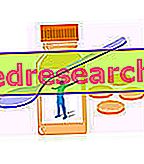Watch the video
X Watch the video on youtubeBy Dr. Mario Cestaro

Because it is important to drink
Drink appropriately:
- promotes the elimination of waste substances from the body as it increases the excretion of urine and sweat.
- Promotes muscle development in individuals who practice physical activity because: a) 75% of muscle mass is water; b) water antagonizes the catabolic effects of cortisol. If physical activity is prolonged the adrenal glands increase cortisol production. Cortisol is a hormone that has a catabolic effect on muscle tissue, ie it tends to "break it up" to produce energy. Water counteracts this catabolic activity.
- It has an "aesthetic" effect as the water gives shape and rigidity to the fabrics.
- It allows to keep the surfaces of nose, eyes and ears adequately moist.
- Promotes adequate lubrication of the joints through the production of synovial fluid
What to drink
- Sugary drinks should be limited or avoided. They raise their blood sugar sharply, they cause a reduction in the sense of hunger (only temporary), this, especially in children, favors a bad diet. The child consumes sugary drinks during the meal (or immediately before), this determines a rapid raising of the glycaemia that causes sensation of satiety. The child stops eating but the feeling of hunger returns within a few hours (before three hours from the end of the meal). The child generally reacts to the recurrent feeling of hunger by consuming "junk foods" (eg snacks, biscuits) that favor overweight and obesity. Scientific studies have found that the consumption of sugary drinks is associated with an increase in body weight.
- Consuming a glass of warm water in the morning promotes intestinal peristalsis, then evacuation (counteracting constipation).
- Consumption of cold water during meals can cause digestive problems during meals, pain and cramps in the stomach away from meals. It is therefore a good idea to consume water at room temperature even in summer.
How much water you drink per day
- The amount of water to be consumed per day is between 1200 ml (6 glasses of water) and 2000 ml (10 glasses of water). The average consumption of 1500 - 1600 ml can be obtained by consuming: a glass of water for breakfast, two glasses of water for lunch, two glasses of water for dinner and half a liter of water away from meals.
- The water consumption, indicated in the previous point, increases: if physical activity takes place. Physical activity generates heat, to prevent an excessive rise in body temperature the body increases the excretion of sweat. The sweat, evaporating, removes heat from the overheated body (the evaporation of a gram of sweat from the surface of the skin removes 0.6 calories from the body). At high altitude. At altitudes above 2500 meters the excretion of urine and the respiratory rate increase with consequent increase of water losses by the body (in the expired water it is contained water vapor, normally, between 250 ml and 350 ml of water are eliminated via this route). On all occasions when there is an increase in sweating, in addition to physical activity: feverish states and particularly hot climates. In the event of water leaks due to diarrhea or vomiting. During pregnancy and lactation. For pregnant women a daily consumption of water of 2100 ml per day is indicated, for those who are nursing a consumption of 3100 ml per day.
Is drinking a lot useful for "feeling good" or "losing weight"?
No, indeed. Excessive water consumption (indicatively drink more than 4-5 liters of water per day, in the absence of physical activity or particular climatic conditions):- slows digestion. Drinking in an exaggerated manner during meals causes an excessive dilution of the gastric juice so that the meal tends to "remain on the stomach".
- Increases blood pressure by increasing blood volume.
Water and hydration »



